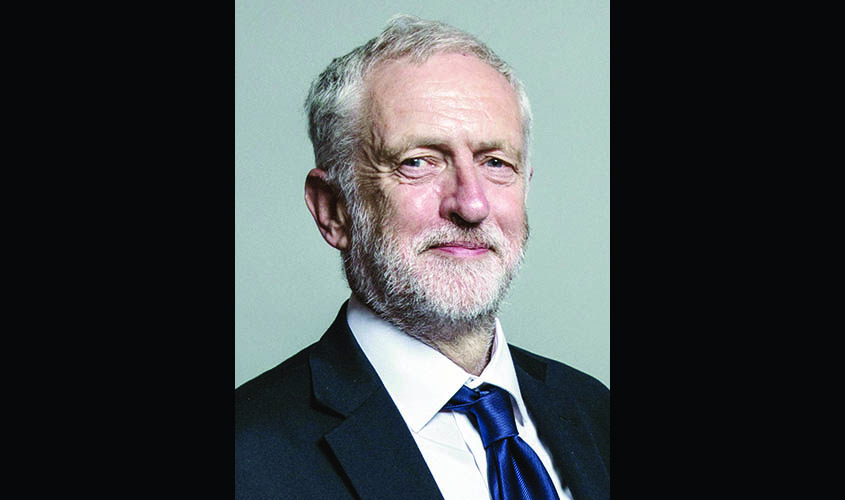There are some moderate Labour MPs who voted to leave the EU, but do not support Jeremy Corbyn’s leadership.
LONDON: The Prime Minister’s No. 10 team has come up with the weakest argument to support Theresa May on Brexit: “It is May’s Deal or No Deal.” MPs are not exactly rushing to support May, but some are uniting against the UK’s common enemies of Jean Claude Juncker and Michel Barnier. Others are feigning support to avoid future accusations of gender bias and being responsible for the collapse of UK’s second woman Prime Minister.
The Labour party, on the other hand, has a different dilemma, but similarly of division over European Union. Jeremy Corbyn, the Leader of the Opposition is a life-long Eurosceptic. In the wake of hard-left politician Anthony Wedgwood Benn, a faction of Labour MPs, including Corbyn and Shadow Chancellor John McDonnell, cannot reconcile managing a socialist UK economy under EU regulations. There are also some moderate Labour MPs who voted to leave the EU, but do not support Corbyn’s leadership. The remaining Labour MPs, 2/3rd of Labour membership and the trade unions want to remain in the EU. Critics say Corbyn is not transparent about Brexit, but the Labour Manifesto says clearly, “Labour accepts the referendum result and a Labour government will put the national interest first”. It has become de rigueur to quote “in national interest” without qualitative and quantitative analyses. Theresa May also quotes unsubstantiated “national interest” to support her deal, the Withdrawal Agreement (WA).
During Christmas week, Harry Potter author J.K. Rowling lampooned Corbyn’s Brexit strategy with a series of 16 tweets written in Biblical-esque verse and using bad language. David Milliband, former Foreign Secretary, penned a beastly criticism of both May’s plan and Corbyn’s approach to Brexit, and George Peretz took umbrage to Corbyn’s claims that he might use EU state aid to develop UK industry. And Corbyn is still coping with claims that his party is anti-Semitic. On 20 December, Ivan Lewis MP resigned from the Labour as he could “no longer reconcile” his “Jewish identity with Labour policies”, while the US Wiesenthal organisation rated Corbyn fourth on their 2018 list of the most prominent anti-Semites.
The 2016 London School of Economics report that examined journalistic representations of Jeremy Corbyn in the British press has resurfaced, stating that Corbyn has been delegitimised through lack of voice, distortion, ridicule, scorn, by association and by personal attacks in mainstream media.
Corbyn is expected to tread carefully to harness the engagement of his grassroots and hold his party together; if young voters feel he has let them down as they believed he could stop Brexit, they could defect to voting for the Liberal Democrats, who assertively want to remain in the EU. The clamour within Labour for a second referendum increases daily, encouraged by Keir Starmer, Shadow Brexit Secretary, who broadcasts he wants a “remain” option on any Second Referendum ballot paper and is waiting for his opportunity to challenge Corbyn.
What is Corbyn to do in 2019? As a Eurosceptic, if he supports May’s WA in the Meaningful Vote scheduled for 15 January he will likely crash down in the polls. If Corbyn votes against the WA he will likely crash down in the polls since he has politically committed to support the result of the 2016 Referendum. As it turns out, Corbyn’s first gambit is to challenge May to bring back Parliament early and hold the Meaningful Vote without wasting any more time. If the Eurosceptics in his party vote against the government, despite the exhaustive Tory lobbying to persuade them to support May, and should May lose the vote, the case for a Second Referendum strengthens; or Labour might find the timing appropriate to launch a vote of no confidence in the government.

